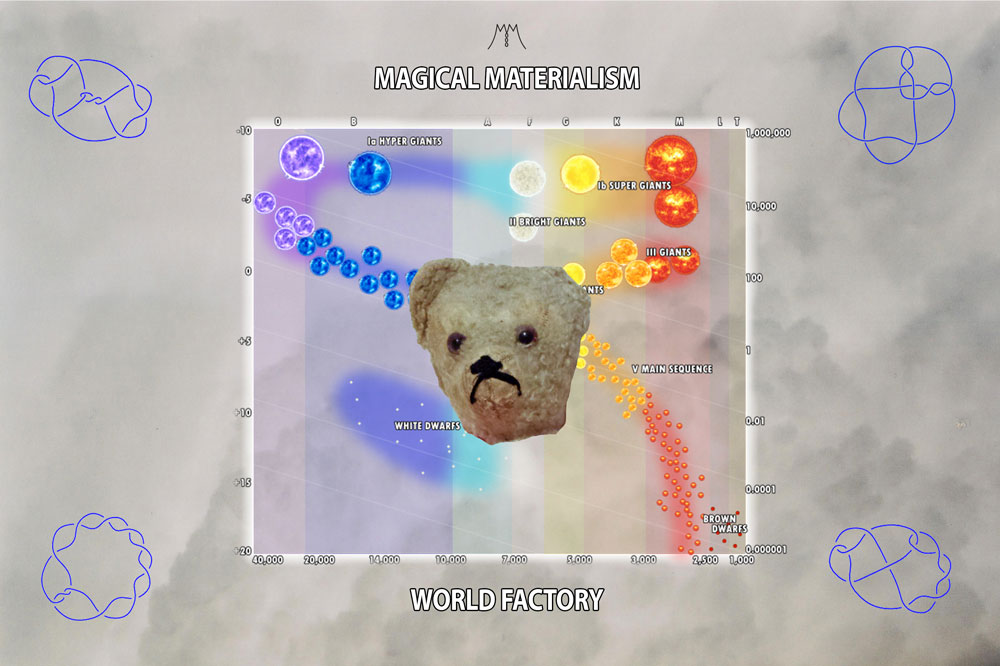Workshop
Time commitment: 5 hrs.
What you need: a computer with internet, a room for yourself, a soft space.
Previous experience not necessary.
Maximum participants: 20
![]()
Magical Materialism: World Factory
Time commitment: 5 hrs.
What you need: a computer with internet, a room for yourself, a soft space.
Previous experience not necessary.
Maximum participants: 20

Worldbuilding writing workshop by TRAKAL
The r/evolution is lost, or never got underway.
She was co-opted anyway. She liberated the occupied countries that we called home, and brought us anything but liberty.
We are in any case born after her. And for all we know, she might never have happened.
Capitalism is and will always be, always was,
even though somebody told me we were once on a road to getting rid of it.
The r/evolution has become a part of our alienation machine.
She feeds us with a world that we don't want to imagine but cannot forget.
A world is like a deity. Its worship is the r/evolution.
Were we able to imagine new worlds, new r/evolutions would emerge,and this, precisely, is the task of the
world factory.
Worldbuilding, as we know it, takes a universalizing and objectivist approach to constructing fictional planets and universes. I look at worldbuilding as a literary practice in the tradition of utopian writing, which today is employed for all kinds of media depicting science-fiction universes. The average worldbuilding guide zooms in from the planetary level to the subjectivities that experience the world, by way of the lenses of empiric sciences: from geology to ecology, biology to physics, political science to anthropology. My approach to worldbuilding is one from the inside out. Instead of the macro perspective, I start with the image of a subject, and more so with its affects of alienation that separate it from its ontological home world. The split demarcates a place of radical alterity to the world, from which we may construct alternative worlds. Magical Materialism: World Factory is an online world-building writing workshop, that takes its cues from Psychoanalysis and a post-socialist perspective of Andrey Platonov's concept of the „literature factory“. In a series of exercises we will role-play our professional positions in the world factory and write a world collectively.
Trakal
Trakal (*1988, Dresden) is a filmmaker, writer and participatory artist
based in Berlin. Through collaborative process, performative rituals, historical interrogation and psychodynamic
research Trakal develops films, texts and installations that deal with the impact that neoliberal subject
production, post-socialist processes and surveillance technology have on the formation of communities. Trakal’s
work has been shown among others at Museum for Photography Berlin, Museum Folkwang Essen, Cinemateca Distrital
Bogotá, Savvy Contemporary Berlin. Most recently Trakal was a participant at the Whitney Independent Study
Program.